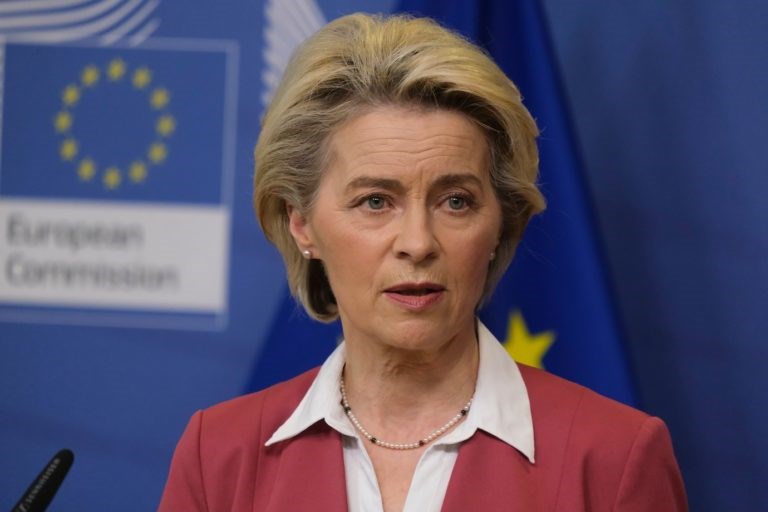EU to face several challenges through de-risking strategy with China
The EU President criticized China for enticing European businesses to relocate to China with promises of low energy costs, low labor costs, and business-friendly legislation.
-

EU Commission President Ursula von der Leyen. (EPA-EFE)
EU Commission President Ursula von der Leyen said on January 17 at Davos that the EU should de-risk rather than decouple its trade ties with China and that the EU should use its foreign subsidies to do so.
The concept of de-risking involves banks restricting business relationships with clients to avoid, in this case, what it considers an 'unleveled playing field' concerning green subsidies.
The EU President blamed China for enticing European businesses to relocate to China with promises of affordable energy, affordable labor costs, and business-friendly regulations.
Admitting that the EU still relies heavily on China for strategic resources will be crucial for the shift to net zero. Von der Leyen called on de-risking investments with China rather than decoupling, which involves completely cutting economic ties with the Asian country.
It seems that the EU is aware that a decoupling approach would not work, but de-risking would involve a slow and structural process towards ending reliance on Chinese trade, journalist Alan Beattie said in an op-ed for the Financial Times.
Read more: Europe must eliminate risks in raw materials' supply chains: EU chief
When it comes to regulating exports, the report states that the EU has highly sophisticated mechanisms set to impede trade operations with entities and countries it considers a threat.
But when it comes to China, "Brussels is struggling to construct tools to reduce a perceived dangerous reliance on Chinese trade," the report notes.
This is proven by the fact that the report on the US-Netherlands-Japan agreement aimed at restricting the sales of semiconductors to China still hasn't been released.
When one country struggles to agree on a specific policy, the capacity to implement it on a bloc-wide level lessons at the expense of national interests, the report explains.
The EU is seeking to become self-sufficient, but its 'underpowered' subsidy program and its domestic industries lagging far behind those of China and the US make it harder to work out an uncompromisable de-risking plan of action.
Nonetheless, some EU members remain optimistic that the upcoming "Foreign Subsidy Regulation" (FSR), enforced in July 2023, will enable the Commission to better monitor state-subsidized companies from conducting trade operations with China.
But looking at the EU's history in the poor usage of Trade Defense Instruments, the question that comes to mind is how effective the regulation would be.
Read more: Putin signs decree banning sales of oil to price cap abiding states
"The anti-foreign subsidy tool, along with traditional TDI, is unlikely to achieve a carefully calibrated degree of distance between the EU and Chinese economies," the report admits.
The report states that the financial instrument may be used "too broadly, reflecting domestic lobbying rather than a well-judged strategy of competitiveness."
Following the US lead in severing trade ties with China, the EU is looking to dive head-first into a point of no return as forecasts of economic recession are nearing ahead.
The idea of a trade war is problematic because China has never threatened to defy the sovereignty and integrity of any state in the past.
In some way, it is adequate to say that China is the victim of its success, as it merely played 'by the rules' and propelled itself via fair and open trade practices.
Instead of protesting Washington, its supposed "ally," for its refusal to overturn its subsidy program, the bloc is resorting to punishing China instead, reflecting the likes of a child whose unable to stand up for itself against its bully - so instead it seeks to bully another.
Read more: South Africa: BRICS mulling new payment system to ditch dollar control

 4 Min Read
4 Min Read








